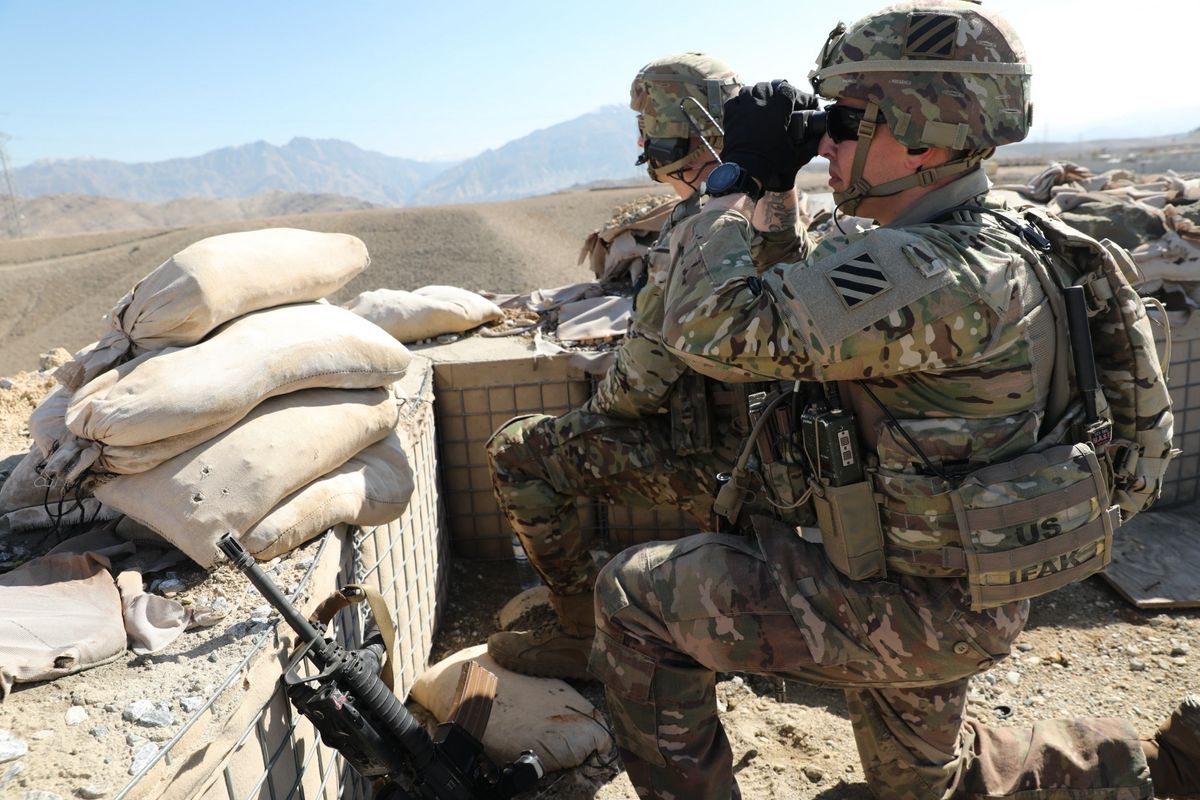$2 trillion spent – Has the US achieved anything in Afghanistan?

A few minutes every morning is all you need.
Stay up to date on the world's Headlines and Human Stories. It's fun, it's factual, it's fluff-free.
A report released by the New York Times indicates that despite spending $2 trillion during 18 years of war in Afghanistan, the United States appears to have little to show for its efforts in the conflict. The war has resulted in the deaths of more than 38,000 Afghan civilians and 2,400 American soldiers. The report uses data from Brown University’s Costs of War Project and highlights how the United States has failed to achieve its aims in Afghanistan while spending vast sums of money in the process.
Taliban threat remains
Following terrorist attacks by al-Qaeda in 2001, President George W. Bush announced the invasion of Afghanistan. The goal was to defeat the Taliban.
Eighteen years since the first military action, the United States has spent $1.5 trillion waging war. This spending did, however, not result in the Taliban’s defeat. Rather, they remain influential throughout the country and have continued to expand their operations in Africa and the Middle East.
The details of the $1.5 trillion in military spending remain unclear, but the New York Times reports the United States Department of Defense’s declassified documents show that training, facilities and transportation costs make up the majority of the expenditure.
Increased opium production
The United States has pledged upwards of $10 billion in fighting opium production in Afghanistan. In a recent report, the Special Inspector General for Afghanistan Reconstruction described US counternarcotics efforts as a “failure.”
According to the New York Times report, Afghanistan had almost eradicated the production of opium before the United States invaded the country in 2001. The opium trade in Afghanistan has gone from being almost obsolete before the arrival of US forces to supplying 80% of the world’s heroin today.
As the United States waged war in Afghanistan, opium became a major source of income and employment in the Middle Eastern country, as well as providing revenue for the Taliban.
Afghan forces still need US support
The United States has spent a large sum – $87 billion – on training Afghan military and police forces. However, according to Business Insider, the coalition of the Afghan and US armies does not believe Afghan forces can support themselves or defeat the Taliban without American support.
A primary US goal has been to train thousands of combat-ready Afghan troops, but these efforts have failed – in part to the Afghan army suffering desertions and high casualties. As a result, 14,000 US troops continue to be the main security force in Afghanistan as of 2019.
Weak economy despite investment
Alongside military spending, the United States has allocated a significant amount to the economic development of Afghanistan. Yet, $24 billion spent on economic growth has not produced a strong economy or lifted Afghans out of poverty.
The United States also invested $30 billion in reconstruction programs, such as refugee assistance and aid for natural disasters. The New York Times reports that due to corruption and poorly conceived plans, most of the funds have gone to waste.
Costs to continue
Debt and medical costs will add to the $2 trillion already spent on the war.
The report suggests that the United States will pay more than $600 billion in interest on the loans which funded the conflict in Afghanistan. Alongside the borrowed money, experts claim that medical costs for veterans, which have already reached $350 billion, will significantly increase in the future.
[article_ad]




Comments ()